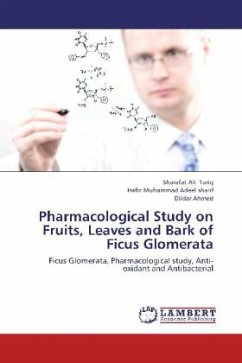Doctoral Thesis / Dissertation from the year 2014 in the subject Chemistry - Bio-chemistry, , language: English, abstract: Oxidative stress, excess generation of Reactive Oxygen Species (ROS), is a common event in many pathological conditions including cancer. The generation of reactive oxygen species (ROS) is an inevitable aspect of life under aerobic conditions. ROS are continuously produced as byproducts of certain metabolic pathways and also by some specific systems under fine cellular control. At the same time, ROS are degraded via several specific and nonspecific mechanisms. These two processes are usually under tight cellular control and very low (<10-8 M) steady-state levels are maintained. However, under some special conditions, the balance between ROS production and elimination is disturbed and leading to generation of super oxides (O2-), hydroxyl radical (OH-) and hydrogen peroxide (H2O2).H2O2, a common intermediate of various enzymatic and non-enzymatic reactions including electron transport chain, peroxisomal oxidases, flavoproteins as well as D-amino acid oxidases, L-hydroxy acid oxidases and fatty acyl oxidases. In endoplasmic reticulum, cytochrome P-450, P-450 reductase and cytochrome b-5 reductase generate superoxide anion and hydrogen peroxide during their catalytic cycles. The catalytic cycle of xanthine oxidase has emerged as an important source of O2 - and H2O2. During phagocytosis, the phagocytic cells such as neutrophils generate O2- and H2O2 by NADPH oxidase. Inflammation is also one of the major sources of ROS. Spontaneous dismutation of O2- at neutral pH or dismutation by superoxide dismutase also results in H2O2 production. Substantial evidence has indicated that H2O2 play a key role in wide range of diseases including CNS , autoimmune, cardiac, alveolar and hepatic disorders. The pathological role of H2O2 is well established in many acute and chronic disorders such as ischemia, atherosclerosis, diabetes, aging, immuno suppression and neuro degeneration.H2O2 is an important metabolite produced in cells during metabolic reactions, plays an important role in cell death (or) apoptosis. Accumulating data suggest that an increase in the cellular concentrations of H2O2 associated with DNA damage and mutations which leads to the prevalence of various disorders. H2O2 induced DNAf damage seems to be mediated by OH.- generated from H2O2. Several studies have also demonstrated that increased levels of H2O2 can induce cell death.
Bitte wählen Sie Ihr Anliegen aus.
Rechnungen
Retourenschein anfordern
Bestellstatus
Storno








